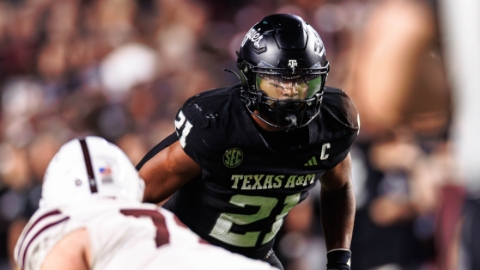The grass isn't always greener: Ten worst head coach firings since 2000
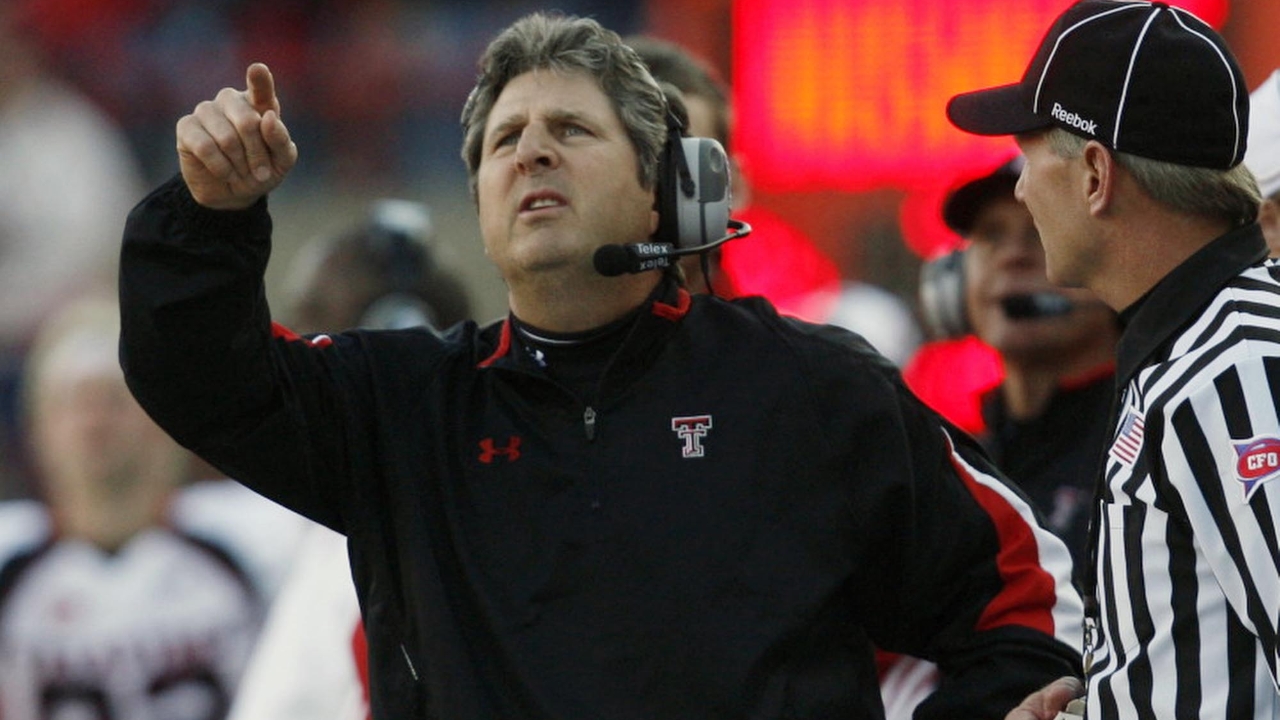
Remember that old flame you doused so many years ago? That significant other you let get away because maybe everything wasn’t perfect?
Or maybe you thought you could do better. Maybe you did. But perhaps it took a while.
Still, from time to time, you might reflect with regret and wonder what might have been if you had stayed together.
Well, football coaches are like that, too.
It’s quite common for college football fans and media to analyze the coaching hires that failed, but what about the programs that may have made a mistake in firing a coach?
There is a long list of college programs that have been stuck in mediocrity after firing successful coaches. In many cases, that can be excused because of unacceptable behavior or controversy.
Ole Miss had to fire Hugh Freeze. Arkansas had to fire Bobby Petrino. Baylor had to fire Art Briles. Colorado had to fire Gary Barnett.
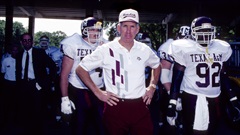
However, many programs just became impatient or had unrealistic expectations. Other times, a coach became a victim of his own success.
Texas A&M certainly isn’t immune.
The prudence of the 2002 firing of R.C. Slocum is still often debated among Aggies, but it’s clear A&M did not get better for a long time following his termination.
Slocum never had a losing season in becoming the winningest coach in A&M history. The Aggies were 123-47-2 in 14 seasons under Slocum, winning four conference championships and enjoying five seasons with at least 10 victories.
Nearly a decade of mediocrity followed his dismissal. Dennis Franchione, Slocum’s successor, was 32-28 in five seasons. Mike Sherman, who followed Franchione, was 25-25.
A&M still hasn’t won a conference championship since Slocum’s exit, though that’s more due to moving from the Big 12 to the Southeastern Conference than coaching.
Firing Slocum was a mistake, but A&M is in no way alone in making such an error. Indeed, the Aggies probably wouldn’t make the Top Ten for worst firings since 2000.
Here’s ours.
10. Jeff Tedford, California: Once a national power, Cal had managed one winning season in 10 years before Tedford was named head coach in 2002. The Golden Bears went 7-5 in Tedford’s first season. That was one of nine winning seasons in 11 years under Tedford, in which he was 82-57. However, he was dismissed after a 3-9 finish in 2012. In the following eight seasons, Cal is 40-51.

9. David Cutcliffe, Ole Miss: Before Cutcliffe brought respect to a moribund Duke program, he had an impressive six-year run in Oxford. Cutcliffe was 44-29 from 1998-2004 at Ole Miss. The highlight was a 10-3 finish in 2003 when the Rebels tied for first place in the SEC West, but he was fired after going 4-7 in 2004. Cutcliffe was replaced by Ed Orgeron, who posted 10 victories in three seasons. Then, the Rebels went 24-26 in four seasons under Houston Nutt. Ole Miss finally regained consistent success under Hugh Freeze, but he was eventually fired for … uh … unsavory use of a university-issued credit card as well as recruiting violations.
Bottom line, Ole Miss had five winning seasons in six years under Cutcliffe. It has had six winning seasons in 16 years since he left.
8. Ruffin McNeill, East Carolina: Historically, East Carolina has had brief periods of success but has never been able to sustain it. Ruffin McNeill came close. He was 43-34 in six seasons. The Pirates had a three-year run from 2012-2014 in which they won at least eight games every year, but McNeill was fired after going 5-7 in 2015. Four of those losses were by a touchdown or less to the likes of Florida, BYU and Cincinnati. The Pirates have not managed more than four wins in any of the following five seasons. They’re 16-41 in that span.
7. Paul Pasqualoni, Syracuse: In 14 seasons from 1991-2004, Syracuse was 107-59-1 under Pasqualoni. That included three 10-win seasons. Syracuse opted to make a change after a 6-6 finish in 2004. It didn’t work out as planned. Greg Robinson, Pasqualoni’s successor, was 10-37 in four seasons. The Orange are 73-121 under four coaches since replacing Pasqualoni.
6. Frank Solich, Nebraska: Perhaps the greatest failing for Frank Solich was that he was not Tom Osborne. In 1998, Solich was put in the difficult position of replacing Osborne, the winningest coach in Nebraska history and a bona fide legend in Lincoln. To make matters even more challenging, Nebraska had won a share of the national champion in 1997. In six seasons, Nebraska was 58-19 under Solich. The Cornhuskers posted 12 wins in 1999 and 11 in 2001. However, Solich was fired after going 9-3 in 2003. He was replaced by Bill Callahan, who was 27-22 in four seasons. Bo Pelini had a successful seven-season run but brought off-field embarrassment to the program. Mike Riley was 19-19 in three seasons. Current coach Scott Frost is 12-20 since taking over the program in 2018.
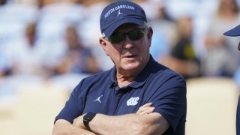
5. Mack Brown, Texas: Brown took over a moribund Texas program in 1998 and quickly transformed it into a national power. Brown went 158-48 in 16 seasons. That included a national championship in 2005, a national championship game appearance in 2009 and nine 10-win seasons. His team had just one losing season. Yet, he was forced to resign after an 8-5 finish in 2013. Charlie Strong took over and suffered through three consecutive losing seasons. Tom Herman followed with mediocre results. Texas is 48-39 since Brown’s departure.
4. Philip Fulmer, Tennessee: Only legendary coach Robert Neyland posted more victories at Tennessee than Fulmer, who was 152-52 in Knoxville over 16 seasons. Tennessee won the 1998 national championship, two SEC championships and posted at least 10 victories nine times under Fulmer. However, one year after a 10-4 finish in which the Volunteers represented the East Division in the 2007 SEC championship game, Fulmer was fired. He only had two losing seasons at Tennessee, but they were 5-6 in 2005 and 2008.
Tennessee demanded more. It got less. In the following 12 seasons, Tennessee has compiled a 73-75 record under four coaches. The Vols have not had another 10-win season since Fulmer’s ouster.
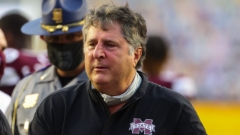
3. Mike Leach, Texas Tech: Texas Tech never had a losing season in ten years under Leach. In fact, the Red Raiders won at least nine games five times. They even were ranked No. 2 during Week 13 of the 2008 season. Leach was 84-43 at Tech and the winningest coach in school history. Still, Leach was fired before the 2009 Alamo Bowl one day before he was due an $800,000 tenure bonus and more than $1.7 million in guarantees for the 2009 season. Tech saved the money, but its football fortunes declined dramatically. In the following 11 seasons, Texas Tech has had three head coaches, four winning seasons and has managed no more than eight victories (twice) in a year.
2. Mark Mangino, Kansas: It seems hard to believe, but Kansas football once ranked in the final top ten. That was 2007 when the Jayhawks finished 12-1 and defeated Virginia Tech in the Orange Bowl. Mangino was Kanas’ head coach that year. In fact, he coached Kansas for eight seasons from 2002-2009. He was 50-48 and led the Jayhawks to four bowl games. That’s no modest accomplishment in Lawrence. After a 5-7 finish in 2009, Mangino was fired for boorish behavior, profane language and poking a player in the chest. Kansas is 21-108 under five coaches since Mangino left. The Jayhawks have not posted more than three victories in any season during that span.
1. Ralph Friedgen, Maryland: Maryland had not won more than six games in any season for 15 years before Friedgen took over in 2001. His first team finished 10-2. The next season, the Terps were 11-1. In 10 seasons from 2001-2010, Maryland went 75-50 under Friedgen, yet he was fired after Terps went 9-4 in ’10. He was replaced by Randy Edsall, who was 22-24 in over four seasons. Since Friedgen’s ouster, Maryland is 43-73 and has not managed more than seven victories in any season. Still, the Terps did post victories over Texas in 2017 and 2018.




